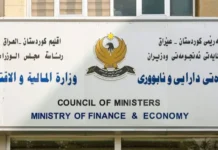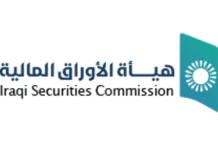Good Morning,
U.S. Regulator Orders Fannie Mae, Freddie Mac to Consider Crypto in Mortgage Risk Assessments
By Cointelegraph | June 2025
In a major development for crypto adoption in real estate, the Federal Housing Finance Agency (FHFA) has directed Fannie Mae and Freddie Mac to begin evaluating cryptocurrency as an asset class in their single-family mortgage loan risk assessments.
Crypto Assets May Soon Count Toward Mortgage Applications
FHFA Director William J. Pulte issued the directive in a formal letter this week, stating the government-sponsored enterprises (GSEs) must:
“Prepare a proposal for consideration of cryptocurrency as an asset for reserves in their respective single-family mortgage loan risk assessments, without conversion of said cryptocurrency to U.S. dollars.”
This marks the first time U.S. housing authorities have opened the door to counting crypto holdings as qualifying assets for mortgage applications, a move that could reshape risk models and eligibility standards for millions of Americans.
Eligibility Limited to Regulated Crypto Holdings
The guidance includes a critical restriction:
Only cryptocurrencies that are:
▪️ Evidenced and stored on U.S.-regulated centralized exchanges
▪️ Subject to all applicable federal laws and compliance standards
will be considered under the new proposal.
This standard excludes unhosted wallets and decentralized platforms, underscoring regulators’ desire for traceability and compliance within the financial system.
Aligns With Trump Administration’s Pro-Crypto Agenda
Director Pulte noted that the shift toward crypto inclusion follows “significant studying” by the agency and aligns with Donald Trump’s stated goal of making the U.S. the “crypto capital of the world.”
The FHFA has been overseeing Fannie Mae and Freddie Mac since both were placed into conservatorship following the 2008 financial crisis. These institutions have since played a central role in stabilizing the mortgage market by buying loans from private lenders, which frees up capital for more lending.
Part of a Broader Crypto Integration Trend
This development is just the latest sign of crypto gaining traction in traditional finance. Recent headlines include:
▪️ JPMorgan’s plans to let select wealth clients use Bitcoin ETFs as collateral
▪️ Circle’s USDC stablecoin being approved as eligible collateral for futures trading starting next year
▪️ Crypto-backed mortgages becoming more common, with firms like Ledn enabling clients to leverage Bitcoin and Ether to purchase real estate without liquidating holdings
“Many Bitcoin holders have already used their digital assets as collateral to purchase property,” said Mauricio Di Bartolomeo, co-founder of Ledn.
Bottom Line:
The FHFA’s crypto guidance for Fannie Mae and Freddie Mac marks a pivotal turning point. If implemented, it could allow crypto-savvy borrowers to leverage their digital assets directly for homeownership, without having to convert to cash—a key win for holders, and another step toward mainstream crypto integration.
Let me know if you’d like a shortened Telegram version or a mobile-friendly newsletter layout.
@ Newshounds News™
Source: Cointelegraph
~~~~~~~~~
Russia Declares Digital Ruble Mandatory for Major Banks and Retailers
By The Coin Tribune | June 2025
Russia is no longer testing its central bank digital currency (CBDC)—it is mandating it. In a sweeping shift, Moscow has ordered that the digital ruble become a compulsory component of its financial and commercial infrastructure, marking a new era of centralized monetary control and programmable currency.
Key Directives:
▪️ By September 1, 2026, all major Russian banks and retailers generating over 120 million rubles (~$1.9 million USD) must support digital ruble payments.
▪️ Full implementation by 2028, eventually reaching nearly all businesses.
▪️ Goal: Strengthen state control over domestic financial flows and reduce reliance on foreign payment systems.
From Pilot to Policy: A Tectonic Monetary Shift
What began as a controlled experiment is now a national directive. The Bank of Russia has released a structured rollout plan:
- 2026: Largest banks and high-revenue retailers begin integration.
- 2027: Obligations expand to all licensed banks and businesses with revenue above 30 million rubles.
- 2028: Mandatory use reaches nearly the entire commercial sector, excluding only very small enterprises.
Russia’s plan to shift its entire economic infrastructure toward the digital ruble reflects not just a technical evolution, but a political statement. The digital currency is not merely a payment tool—it’s a state-controlled, programmable financial system that could track, restrict, or block transactions in real time.
“The obligation is clear, calibrated, progressive, and relentless.”
A Tool of Power—Not Just Progress
This move is as ideological as it is economic. In the face of Western sanctions, Moscow sees the digital ruble as a pathway to financial sovereignty and geopolitical insulation. But critics warn it comes at a steep cost:
▪️ Unlike decentralized cryptocurrencies like Bitcoin, the digital ruble is traceable, programmable, and blockable.
▪️ It offers the state unprecedented control over private financial behavior.
▪️ Universal QR codes issued by Russia’s National Payment Card System will serve as the primary interface for consumers and merchants.
Though officials cite efficiency and modernization, the real power lies in surveillance and regulation—a far cry from the decentralization ethos of blockchain technology.
Delayed Launch, Strategic Calculations
Originally scheduled for July 2025, the launch has been postponed to mid-2026, not only due to technical adjustments but to manage institutional resistance and political friction. The central bank is walking a fine line between ensuring adoption and avoiding systemic disruption.
Bottom Line:
Russia is embarking on one of the world’s most ambitious national CBDC rollouts—not by suggestion, but by decree. This isn’t just about embracing digital currency; it’s about building a monetary firewall, one that empowers the state and potentially restricts individual freedom.
As the digital ruble becomes mandatory, Russia is redefining the role of money in society—and raising questions globally about the future of financial autonomy in an era of programmable currency.
@ Newshounds News™
Source: Cointribune
~~~~~~~~~
Seeds of Wisdom Team RV Currency Facts Youtube and Rumble
Newshound’s News Telegram Room Link
Follow the Roadmap
Follow the Timeline
Seeds of Wisdom Team™ Website





